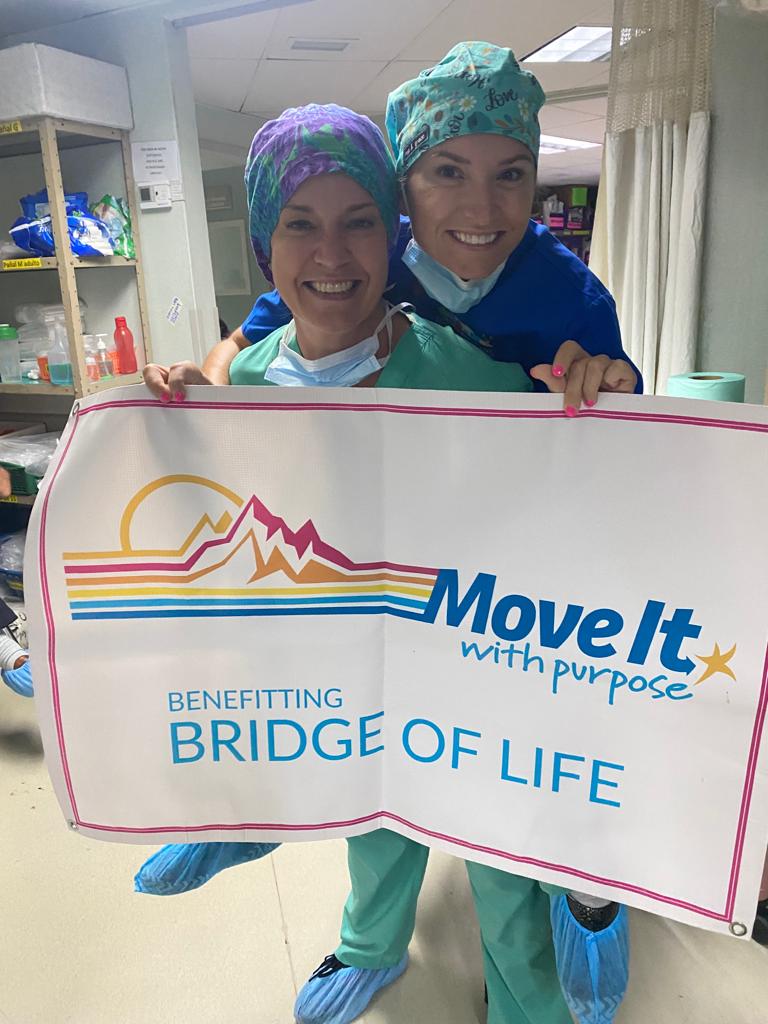Certified registered nurse anesthetists Jamie Kobs and Melissa Smith of the UNMC Department of Anesthesiology returned recently from a medical mission trip to Guatemala, where they provided AV fistulas for pediatric patients who require dialysis due to renal failure.
The two were part of a Bridge of Life team that completed 23 surgeries in four days to underserved patients in Guatemala City.
The nonprofit Bridge of Life offers healthcare programs globally to prevent and treat chronic diseases.
Kobs said she always has been interested in mission work, and this was her third anesthesia-related trip.
“I believe that we have so many opportunities in both education and health care in the United States,” she said. The trips, she added, allow her to share her knowledge of anesthesia and provide aid to an underserved population in need of her skills.
She asked Smith to join when the group suddenly lost a CRNA due to an injury.
“I have previously participated in a medical mission, and it was such a rewarding and fulfilling experience,” Smith said. “Mission trips help me refocus on what is important. I feel so blessed in my life, and giving back is how I can show my gratitude.”
On their first night, they participated in a team-building activity in Antiqua, climbing the volcano Pacaya. They then went to Guatemala City to begin work at Roosevelt Hospital.
“The trip was beyond my expectations,” Kobs said. “The surgeons were amazing, the surgical and anesthesia teams at Roosevelt Hospital welcomed us, and the patients and parents were so grateful. “The relationships I formed with my colleagues, both old and new, are an added bonus.”
The language barrier was a challenge, Kobs and Smith said, especially when trying to comfort the children prior to the procedure. But they said they learned how far nonverbal language and a comforting touch can go.
“The emotional toll also can be challenging,” Kobs said. “We were working with limited supplies and medications and simply did not have the capacity to treat every patient. Having a supportive CRNA partner to debrief with was amazing.”
Both Smith and Kobs said interaction with the patients and their families was rewarding, as were the new friendships they formed with other team members.
“I had one patient, a 10-year-old boy, who would be waiting outside the hospital each morning to greet us with smiles and hugs,” Smith said. “I administered his anesthetic for a fistula revision. Each child received a goodie bag with markers, pop-its, stickers, socks, etc. He was trying so hard to wake up after his procedure and check out his bag of swag! had to hold his head up so he could get to his goodies.”
Both plan on additional trips and would encourage others to go.
“Mission work is so fulfilling and makes me appreciate the everyday things that we take for granted,” said Kobs. “Such basic things as being able to get a doctor's appointment for a child, the right to healthcare that we enjoy is not the same worldwide. I strongly encourage everyone, especially those in healthcare to participate in a mission trip- it may change your entire perspective, or at least make you appreciate the healthcare system we have.”
